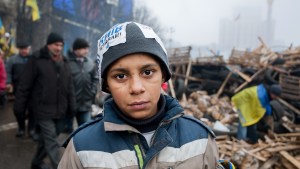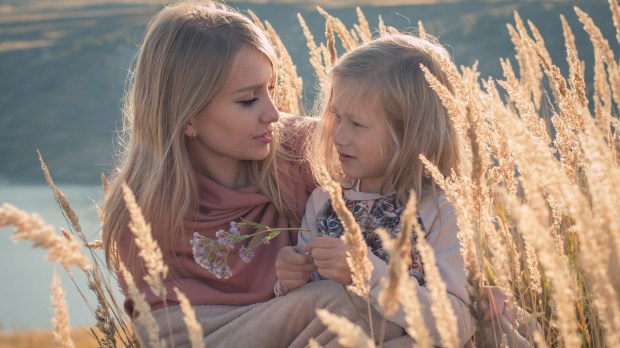Until I taught my children the word “anxiety,” I had no idea how often they experienced it. One of my children, in particular, is more anxious than the others. This little one has expressed anxiety about all kinds of new experiences, from visiting an unfamiliar place to meeting new friends.
It turns out that my kiddo is far from alone in this. Anxiety in children is fairly common: Some 7% of children aged 3-17 years old have been diagnosed with anxiety, and the pandemic has worsened the situation.
Helping my young child with anxiety has taught me a few strategies for coping with it. Here are a few ways that I help my little one with anxiety to thrive. (And as always, this is not medical advice; please talk to a doctor or mental health professional if you have any concerns about your child.)
1I give my child the words to describe the feeling
As I said, until the word “anxiety” was in my child’s vocabulary, my husband and I had no idea how often our child felt this way. Giving children the words to describe what they’re feeling is a powerful tool to help them communicate and get a handle on their emotions.
2I preview new situations
Fear of the unknown is a big cause of anxiety. So I head it off at the pass by talking about a new experience ahead of time, so my child can become comfortable and familiar with it.
For example, if we are going to a new place, I will look up images of the place on Google Maps to share with my kids. If we are meeting new people, I show my children pictures of the person and describe the person. Sometimes I even suggest things to talk about or activities to do with the new person.
All of this “preview work” is a proactive approach to anxiety instead of remaining reactive. It’s been a great way to prepare my child and take the fear out of unfamiliar situations.
This tactic of “previewing” or “prior learning” prepares kids for what to expect in all kinds of circumstances. It’s especially important for times when a parent isn’t with them, so it really helps to share this strategy with educators and other caregivers. You might want to put protocols in place to make sure your child gets the opportunity to preview new situations when you’re not there.
3I role play scenarios
Another way I prepare my child is through role playing what to expect.
Whether it’s meeting a new person, traveling by plane for the first time, or attending summer camp, new situations are easier to handle if my child has been given a clear idea of what to expect and even a “script” of what might be said.
For example, if the child is anxious about approaching other kids at the playground, we might practice saying, “Hi, I’m [name]. Want to play?”
I especially like using beloved toys to role play scenarios. This makes role playing feel like a fun game instead of a chore!
4I take the feelings seriously
It can be tempting for adults to “write off” our children’s concerns. “Oh, that’s no big deal!” we say.
But the truth is that it is a very big deal to our children. They don’t have the life experience to understand and put the fear into context.
So even when a fear seems minor, I try to take my child’s anxiety seriously and treat my child’s thoughts and feelings with respect. I think this teaches my child to show respect to other people, including me.
Well-meaning relatives and others may try to brush off your child’s anxiety in an effort to make the situation better. You may need to speak up on behalf of your child to make sure their needs are taken seriously.
5I try to put the anxiety into perspective
A friend gave me the advice to ask my child to rank the feeling of anxiety on a scale of one to 10. This helps me know how anxious my child is about the topic at hand. It also can help the child to put the feeling into perspective, compared to other things that have caused anxiety in the past.
Ranking the anxiety is a great way to measure improvements. When something that was once a 10 on the anxiety scale drops down to an 8, the child can see that their coping strategies are working. This is so encouraging to our kids!
I hope this is helpful to you. If you’re raising a child with anxiety, hang in there! I believe our work as moms and dads to nurture and love these sensitive little souls is some of the most important work we can ever do.



